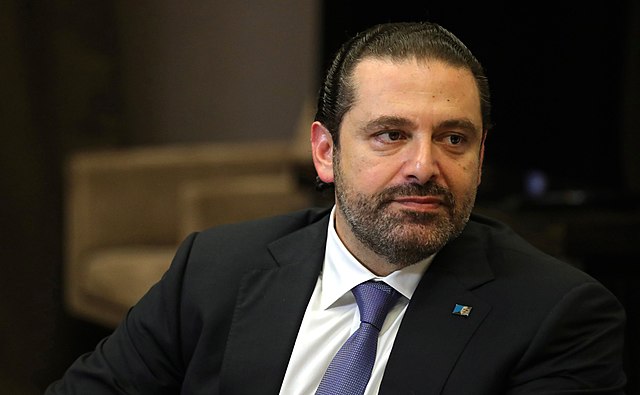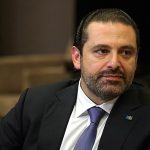by Ghassan Michel Rubeiz
Late in 2018, Lebanese Prime Minister Saad al-Hariri declared that, after seven months of unsuccessful attempts, he might finally form a new government in a matter of “days.” Lebanon still does not have a government, but it’s clear that Hariri is feeling the heat of domestic pressure and is getting a message of “anxiety and caution” from Saudi Crown Prince Mohammad Bin Salman (MBS).
The juxtaposition of the near birth of a government in Lebanon and the gradual return of Bashar al-Assad’s Syrian regime to the Arab fold is significant. If there is any clear sign that the deadlock in forming the Lebanese cabinet is about to end, it is the approaching Arab Economic and Social Development Summit in Beirut, which is scheduled for mid-January.
Underlying the exhaustive and time consuming process of government formation in Lebanon is an outmoded sectarian system of power sharing. The challenges of maintaining that system are exacerbated by lingering tensions between Lebanese parties that go all the way back to the country’s 15 year civil war, which ended in 1989-1990.
In this case, it has taken over seven months to settle a few resolvable issues in cabinet negotiations. One hurdle involved allocating the 15 cabinet posts designated for Christians among Lebanon’s several Christian parties. Another was about how Druze leaders would divide their three allotted ministers. Still another involved the number of ministers the President would identify as his “share” of the cabinet.
There was another thread of conflicts related to which party would get which ministry. Ministries are informally ranked by their budget volume: the larger the budget, the better the opportunity to make a fortune. There were other issues related to which party would be trusted with foreign policy, defense, and internal security. The crisis before last was about selecting a Sunni minister who would be supportive of Hezbollah, which is the lead Shiite party. That crisis, supposedly the last one still outstanding, is settling the question of which party would “win” the Environment Ministry: the Free Patriotic Movement or the Amal Party. It should be noted that the ministry of the environment has a large budget, which is funded by pledged foreign aid.
The Arab Summit and Syria
The time for negotiation for the new cabinet is running out, not by law but by circumstance. It would be difficult to imagine Lebanon hosting an Arab summit meeting later this month without having formed a government. What adds weight to this meeting is the possibility that Syria’s future diplomatic status will be discussed on the sideline of the summit.
As President Bashar al Assad managed this year to reassert his authority in Syria, Arab leaders find themselves having to consider normalizing relations with Damascus. On December 25, the United Arab Emirates reopened its embassy in Damascus. This is a significant breakthrough. The United Arab Emirates would not have restored relations with Assad if MBS were opposed to it. The Saudi prince is changing his overreaching regional policies without admitting failure of vision. Tamara Wittes and Bruce Riedel captured the pressure MBS is under in a recent Brookings Brief:
The depth of the problem is evident in the flight of foreign investors, the onslaught of bad press, the unprecedented Senate action rebuking the crown prince for his role in the murder of Jamal Khashoggi, and the promise by Senator Lindsey Graham to prevent any new weapons transfers as long as Mohammed bin Salman remains in charge.
Bahrain, Tunisia, Egypt and Sudan have already made diplomatic gestures toward Syria, all pointing in the direction of improved relations with the Assad regime. If momentum continues to build behind rehabilitating the Syrian government, Damascus’s membership in the Arab League would be restored in their next meeting in Tunis, which is scheduled for March. It is interesting that Lebanon, which formally has normal relations with Damascus, has so far not invited Syria to the January summit, since such a move “would have to be” initiated by the Arab League collectively.
Preparing for Syria’s Rehabilitation
After Syria’s return to the Arab fold, Lebanon may be a primary beneficiary, provided it has a stable government in place. Such a government will have to delicately manage its relationships with the Syrian regime on the one hand, and Saudi Arabia on the other. The new mood of inter-Arab reconciliation would allow Prime Minister-designate Hariri and his Mustakbal Party to open a new chapter of relations with President Assad and with Hezbollah.
Should Hariri form a new government soon, he will be attending to three urgent issues related to Syria and Hezbollah. The first issue is the repatriation of the million Syrian refugees in Lebanon. The second is the participation of Lebanese enterprises in Syrian reconstructions projects. The third is the return—and reintegration—of Hezbollah’s armed forces from Syria to their home base in Lebanon.
The repatriation of Syrian migrants and refugees should be done in cooperation with the Syrian government and United Nations authorities. Through the refugee return program a new pattern of relations between Damascus and Beirut may be forged. It is hoped that the Lebanese would do their best to help Syrians return safely and with dignity to their country, and to rebuild their future. Reciprocally, Damascus should not expect Lebanon to tolerate heavy Syrian interference in its domestic affairs. The Lebanese people do not look forward to being dominated by Syria again.
The most difficult and explosive issue is the return of Hezbollah fighters to their homes to find jobs and social integration. This topic warrants its own, separate column.
Lebanon will have a cabinet soon. But this cabinet will need much luck, inspiration, and assistance to respond to the emerging political landscape in the region.
Dr. Ghassan Rubeiz is an Arab-American writer, journalist, and commentator on issues of development, peace, and justice. He is the former Middle East Secretary of the Geneva-based World Council of Churches.






Thank you for adding insight and clarity to the mosaic of Middle East issues.
Thanks! Wishing the good people of Lebanon the best. They deserve an ever lasting peace with prosperity!
I hope to read more articles like this. Thanks!